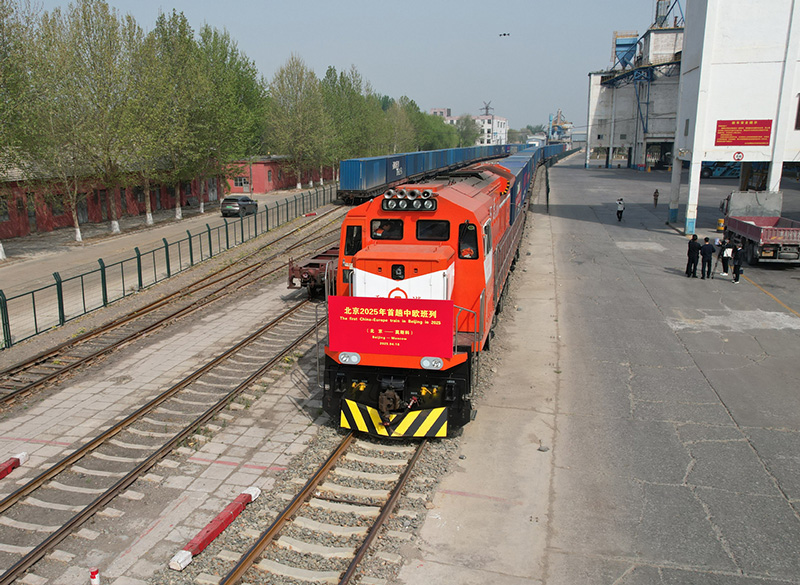In 2025, Russian Railways is spiraling into chaos, suffering the worst crisis since the Great Recession. Freight volumes have plummeted, reaching a staggering 20-month consecutive decline, a clear indicator of the deepening economic malaise. Once a symbol of national pride, the rail network is now a mirror reflecting the broader economic decay under the weight of Western sanctions and war.
Freight Volumes Hit Record Low
According to reports, the decline in Russian Railways’ freight volumes is alarming. In 2024, the company experienced a 4% drop in transport figures, matching a post-Soviet record. The first five months of 2025 have seen a further 7% fall, indicating not merely a stagnation but a rapid deterioration. This decline is particularly evident in key sectors such as construction materials and ferrous metals, which are typically robust categories for freight transport.
Military Prioritization Disrupts Civilian Freight
While civilian freight volumes collapse, one category has surged—military transport. The vague category of "Other goods, including in containers" has become a euphemism for military cargo, as analysts suggest. This shift reflects a conscious prioritization of military logistics over civilian needs, exacerbating the economic crisis. With civilian freight volume dwindling, the railway network is being rerouted to serve the demands of war, further undermining the civilian economy.

Beijing sends first China-Europe freight train in 2025
Labor Shortages and Operational Crises
The operational challenges facing Russian Railways are compounded by severe labor shortages. With an estimated shortfall of 5,500 workers, including engineers and locomotive crews, the company is unable to operate approximately 200 trains daily. This is not merely a logistical issue; it reflects the broader societal impacts of a war economy where many workers have been conscripted or have fled the country. As reported by Rollingstock Agency, the shortage of locomotives compounds the inability to move freight efficiently, leading to traffic jams and further losses.
Financial Mismanagement and Rising Debt
Financially, the situation is dire. Despite increasing freight tariffs, Russian Railways has seen its net profits drop threefold in 2024 compared to the previous year. The company’s misallocation of resources, such as spending billions on real estate rather than infrastructure and operational needs, raises questions about its management priorities. With debt levels soaring and investment budgets slashed by 40%, the rail service is on the brink of systemic failure. The allocation of 600 billion rubles cut from its budget this year jeopardizes any hope for recovery.

Putin Says US Push for Greenland Rooted in History, Vows to ...
Impact on the Broader Economy
The implications of this crisis extend far beyond the railways. As a major barometer of the national economy, the dysfunction of Russian Railways is a clear signal of impending industrial slowdown. The decrease in freight volume not only hampers trade but also reflects a deeper economic stagnation that could persist for years, even if geopolitical tensions ease. The interconnectedness of the rail network means that disruptions in one area can have cascading effects on the entire economy. If Russian Railways cannot stabilize its operations, the consequences will resonate throughout various sectors, from construction to manufacturing, further entrenching the cycle of poverty and economic disenfranchisement.







![[Video] Gunfire between Iraqi security forces and Sadr militias in Baghdad](/_next/image?url=%2Fapi%2Fimage%2Fthumbnails%2Fthumbnail-1768343508874-4redb-thumbnail.jpg&w=3840&q=75)
